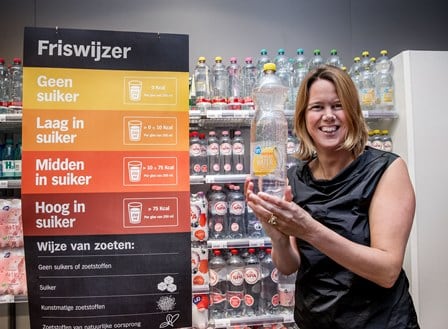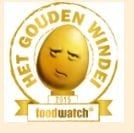It announced yesterday it will initially reduce the sugar in products frequently bought by families such as yoghurt, cookies and custard, and will also target ‘hidden sugar’ products such as ketchup.
It announced yesterday it will initially reduce the sugar of between 10 to 40% in over 100 popular private label products frequently bought by families such as yoghurt, cookies and custard, and will also target ‘hidden sugar’ products such as ketchup.
It will also be launching healthier products such as a Greek yoghurt for children with no added sugar and a dessert containing 100% fruit.
Director of merchandising and sourcing for the supermarket chain, Marit van Egmond, said in a statement in Dutch: "The new products will be on the shelves at the end of 2016. At the end of 2017, these products will therefore be lighter by two hundred and fifty million sugar cubes.
Food watchdog and consumer rights group FoodWatch welcomed the move but pointed out that the supermarket sells around 30,000 products, meaning measures to reformulate 100 products will affect just 0.3% of its total range.
"We will therefore assume that this is a beginning of a longer process," it said.
Colour coded branding
It will also introduce a ‘Beverage Guide’ system in its soda drink aisle which it says will allow consumers to “consciously choose” within its own brand soda drinks.

A 250 ml glass that provides up to 10 kcal will be branded in yellow while a 250 ml glass that serves over 75 kcal will be branded in red, although
The supermarket will also indicate whether the drinks have been sweetened sugar, artificial sweeteners or natural sweeteners.
FoodWatch campaigner Sjoerd van de Wouw pointed out that Albert Heijn has not clarified how prominently its 'Beverage Guide' would be, both in store and on pack, and questioned the usefulness of another nutrition label on products.
"While there are some similarities between Albert Heijn's beverage guide and the traffic light system, the two are not consistent. The 'Beverage Guide' is yet one more example of a private scheme entering the already overcrowded space of certification schemes. The plethora of certification schemes is confusing for consumers, and highlights the need for a mandatory traffic light system that is implemented across the board. Foodwatch does not encourage the development of new private certification schemes initiatives," he told FoodNavigator.
"The signal given by Albert Heijn, as the Netherlands' largest retailer, is important - it recognises the urgency of measures that reduce the amount of salt, sugar and fat in products. Still, it would be an undesirable development if all companies now began developing their own, different certification schemes and setting their own standards for product formulation. Governments should set mandatory standards that apply to all companies."
First prize for misleading healthiness
Albert Heijn’s private label offerings have provoked consumers’ ire in the past due to their unhealthy profiles.
Last year FoodWatch asked Dutch consumers to vote for the most misleading product of 2015 in its ‘Golden Egg’ competition. The nominations included two products from Albert Heijn – the only company to feature more than once – and the retailer scooped up first prize for a packet of cranberries, marketed as a healthy superfood, but which contained a whopping 68% added sugar.

Following the prize, it announced it would change the composition, and the product now contains 60% cranberries and 37% pineapple syrup.
Albert Heijn was the leading supermarket in the Dutch food retail space in 2015 with a market share of 34.1%, according to Distrifood Retailplanniner. It was followed by Jumbo which held 14% and German hard discounter Lidl in third place with 9.7%.
Last year British retail giant Tesco became the first major retailer in the UK to commit to reducing added sugars by 5% incrementally a year in all its own label soft drinks.
